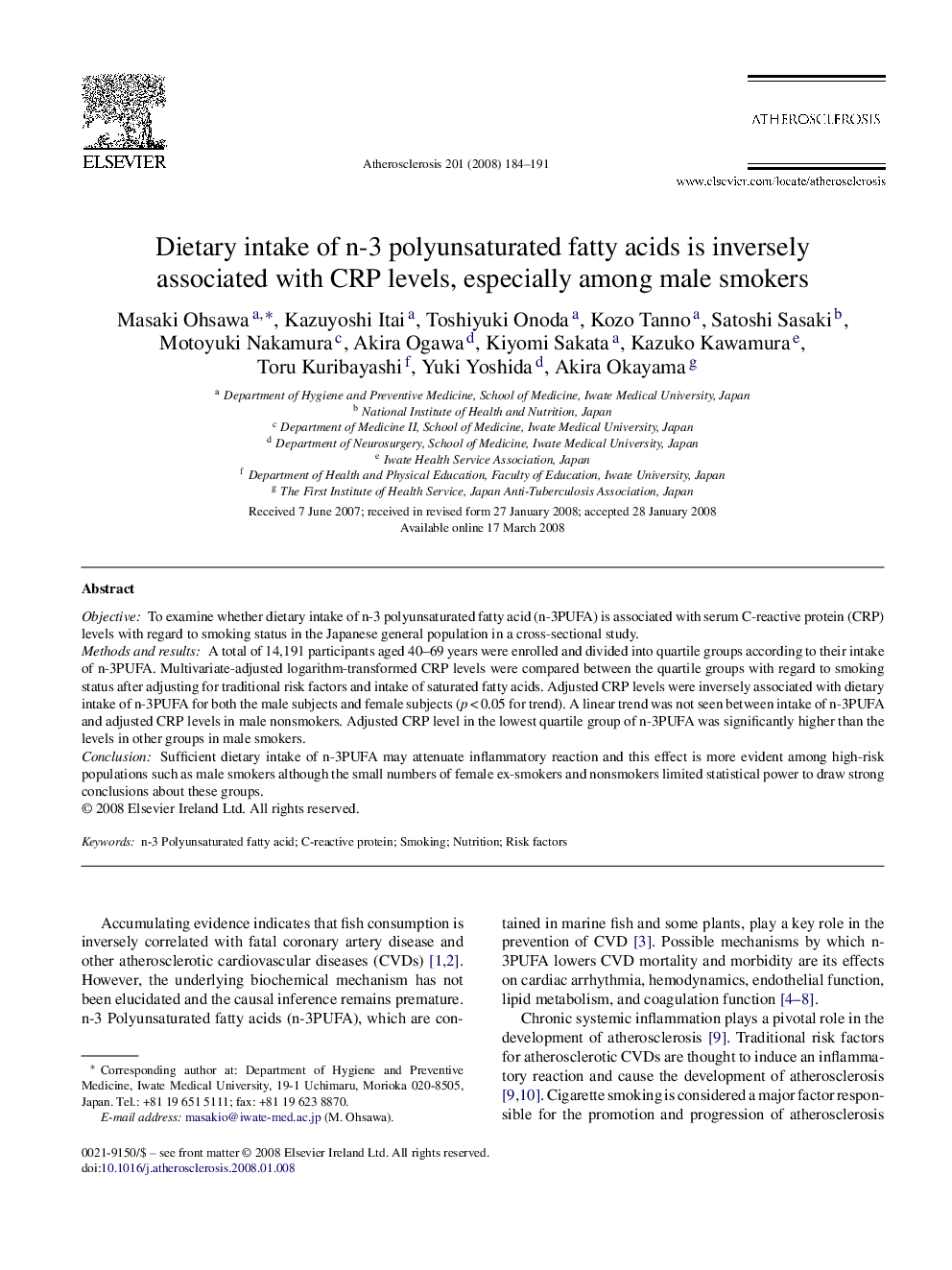| Article ID | Journal | Published Year | Pages | File Type |
|---|---|---|---|---|
| 2893339 | Atherosclerosis | 2008 | 8 Pages |
ObjectiveTo examine whether dietary intake of n-3 polyunsaturated fatty acid (n-3PUFA) is associated with serum C-reactive protein (CRP) levels with regard to smoking status in the Japanese general population in a cross-sectional study.Methods and resultsA total of 14,191 participants aged 40–69 years were enrolled and divided into quartile groups according to their intake of n-3PUFA. Multivariate-adjusted logarithm-transformed CRP levels were compared between the quartile groups with regard to smoking status after adjusting for traditional risk factors and intake of saturated fatty acids. Adjusted CRP levels were inversely associated with dietary intake of n-3PUFA for both the male subjects and female subjects (p < 0.05 for trend). A linear trend was not seen between intake of n-3PUFA and adjusted CRP levels in male nonsmokers. Adjusted CRP level in the lowest quartile group of n-3PUFA was significantly higher than the levels in other groups in male smokers.ConclusionSufficient dietary intake of n-3PUFA may attenuate inflammatory reaction and this effect is more evident among high-risk populations such as male smokers although the small numbers of female ex-smokers and nonsmokers limited statistical power to draw strong conclusions about these groups.
